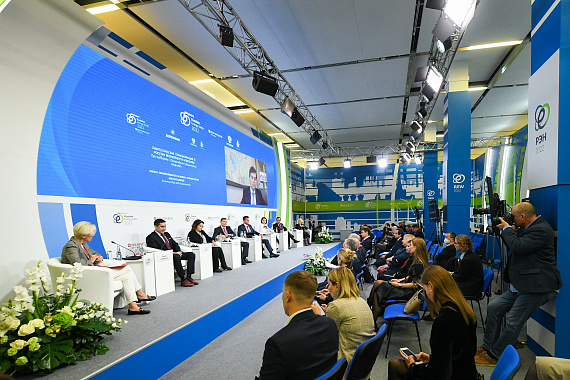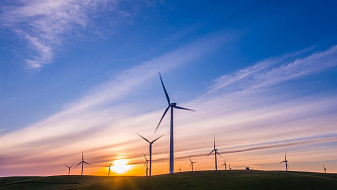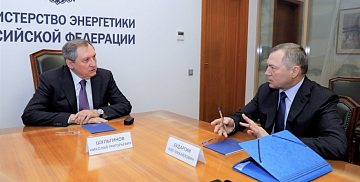Energy Transformation in Russia: Opportunities and Challenges

KEY CONCLUSIONS
The global situation has led to a rethinking of decarbonization processes
“Given all the developments <...> in international energy markets, we have to rethink decarbonization itself, the very movement towards it and the path we have to take to achieve all our goals, which have undoubtedly been preserved. <...> The reassessment of opportunities globally has taken place primarily in the European markets, certainly also in the North American markets. <...> Everyone realized that conventional energy sources are the base, and we have to add on to that base in terms of carbon neutrality. We need to change this base in an evolutionary way,” Evgeny Grabchak, Deputy Minister of Energy of the Russian Federation.
“Electricity is the lowest-carbon carrier, especially if it is produced by hydropower or renewable sources of energy or the atom. <...> In a situation of high energy prices, everyone is aiming for coal. It is cheaper. We need to look closely into what extent it is optimal from the environmental and social point of view, from the point of view of the quality of jobs that this industry creates,” Irina Gaida, Expert, Project Center for Energy Transition and ESG Principles, Skolkovo Institute of Science and Technology (Skoltech).
“We have a unique experience in the construction of the Kola Wind Farm, where the well-known international company Siemens Gamesa was our partner. This project is unique in many ways: it is located in high latitudes, in the tundra, among moss, rocks, with a fantastic wind potential. <...> In the middle of this project, our international partner simply left us. We mastered the whole cycle of wind turbine construction together with our domestic partner in no time. Of course, we encountered difficulties there,” Oleg Kosmenyuk, Deputy General Director – Director for Generation, Enel Russia PJSC.
PROBLEMS
The need to achieve technological sovereignty in the energy sector more rapidly
“The first trend, it seems to me, is the challenges and opportunities of import substitution. <...> Historically, our partners have been European companies. Now, of course, the list of technology partners has expanded and shifted to the East. This is a good moment that requires long-term and consistent programmes to develop our own production, our own power engineering industry, to strengthen it and bring it to the level of global competitiveness. This applies not only to gas power but also to renewable energy sources, the more so because there is a very good scientific groundwork here. <...> The second is the reorientation of the economy towards the east and south, including the energy-intensive industries, which were initially booming back when they were logistics to European markets. Rather, they will be shifting to regions with better logistics – Asia Pacific, Africa, and perhaps Latin America,” Irina Gaida, Expert, Project Center for Energy Transition and ESG Principles, Skolkovo Institute of Science and Technology (Skoltech).
“Gazprom’s internal goal is to develop domestic technologies in the field of hydrogen energy. <...> We should always be ready, including for the resumption of such a hydrogen market, to be ready. It is important to ensure technological sovereignty, which is what we are doing now,” Konstantin Romanov, General Director, Gazprom Hydrogen.
SOLUTIONS
Achieving carbon neutrality
“Generally speaking, we will probably retain one of the greenest and most carbon-neutral energy mixes by relying on gas as our main energy source,” Evgeny Grabchak, Deputy Minister of Energy of the Russian Federation.
Decarbonization and renewable energy projects boost business development
“We have the largest plant and the only solar energy plant. <...> Just the other day, we completed and received a positive technical opinion on conductive silver paste. <...> We have inverter production in Omsk Region today, with other companies doing installation ad IT services. Therefore, we can say that this has a synergistic effect. If the share of RES, the share of solar energy in the energy balance will increase, accordingly, this will stimulate other types of business,” Zoya Sandzhieva, General Director, Hevel.
“All decarbonization projects contribute in one way or another to the technological upgrading of our industry, which is particularly important in the current climate. This ensures a more sustainable and efficient business for our customers and, consequently, our business. We will continue this work and the support of the regulator is very important in this respect,” Natalya Tretyak, First Vice President, Gazprombank.
For more information, visit the Roscongress Foundation’s Information and Analytical System roscongress.org and the official Forum website rusenergyweek.com.




